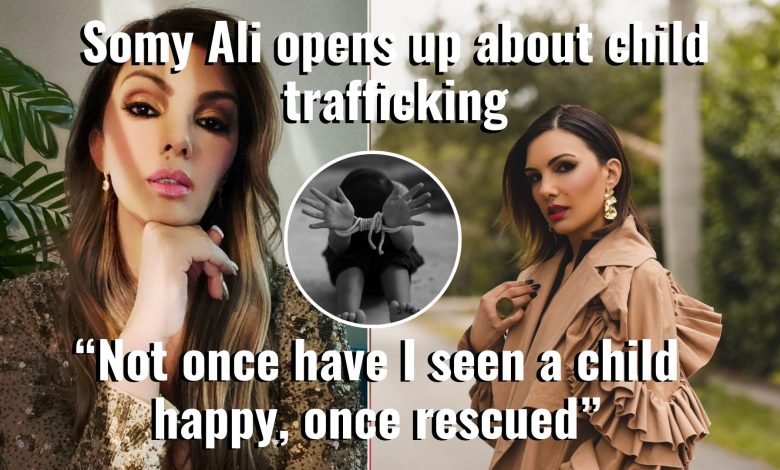Somy Ali opens up on child trafficking: These kids have fear …

Children used for sex trafficking is a very tragic reality of today, says actress Somy Ali, who is leaving no stone unturned to stop this through her US-based NGO No More Tears. Somy, who saves and rehabilitates the victims of this evil crime, says that it’s heartbreaking to see them.
“Not once have I seen a child happy, once rescued, whether they were already dealing with being coerced into sex trafficking daily or we got to them before they were sold. The only justified emotion displayed is fear, like you have never seen. Fear of what will happen to me next?”
She adds, “They see me with the police in a police van, and this perpetuates their fear further as they do not know what will be done to them next. And this is why I go for the rescues because I am trained in what to say to them. How to be gentle with them and how to make sure they understand that I and all the officers with me are the good guys.”
Talking about how she calms them down, she says, “My reassurance that they will not be hurt at all is the key to their heart rate going down to a normal level. That’s my job, and while it may be the toughest, it’s indeed the most rewarding.”
Solution to the problems?
Ask her what steps need to be taken to stop child trafficking, and she says, “Awareness. Vigilance. Social media interactions. All these are intertwined in saving your child of any age. Remember the recruiters are women, and not only children but adult women are also more likely to trust women over men. We assume women will bring kindness and safety, which is why children open up to them online. Give them their home address. Tell them their parents’ names and whereabouts. The child doesn’t see the woman on the other side of the screen as a threat and discloses the smallest detail of what goes on in his or her home. This is what recruiters use to their advantage. They have addresses, schedules, and the nature of the relationship between both parents. Their step is simple, and that is to lure the child with any excuse to them out of the home.”
She adds, “I conduct thorough interviews with the children about their home life. And if I have the slightest doubt that something is wrong, that child will not return to his parents. That’s putting a child from a frying pan into the fire. I am trained to ask the right questions, and instincts play a huge role in my judgment after 17 years of existence. Plus, being abused as a child myself, I use what I know and bring in empathy, not sympathy, to make sure these children remain safe.”
